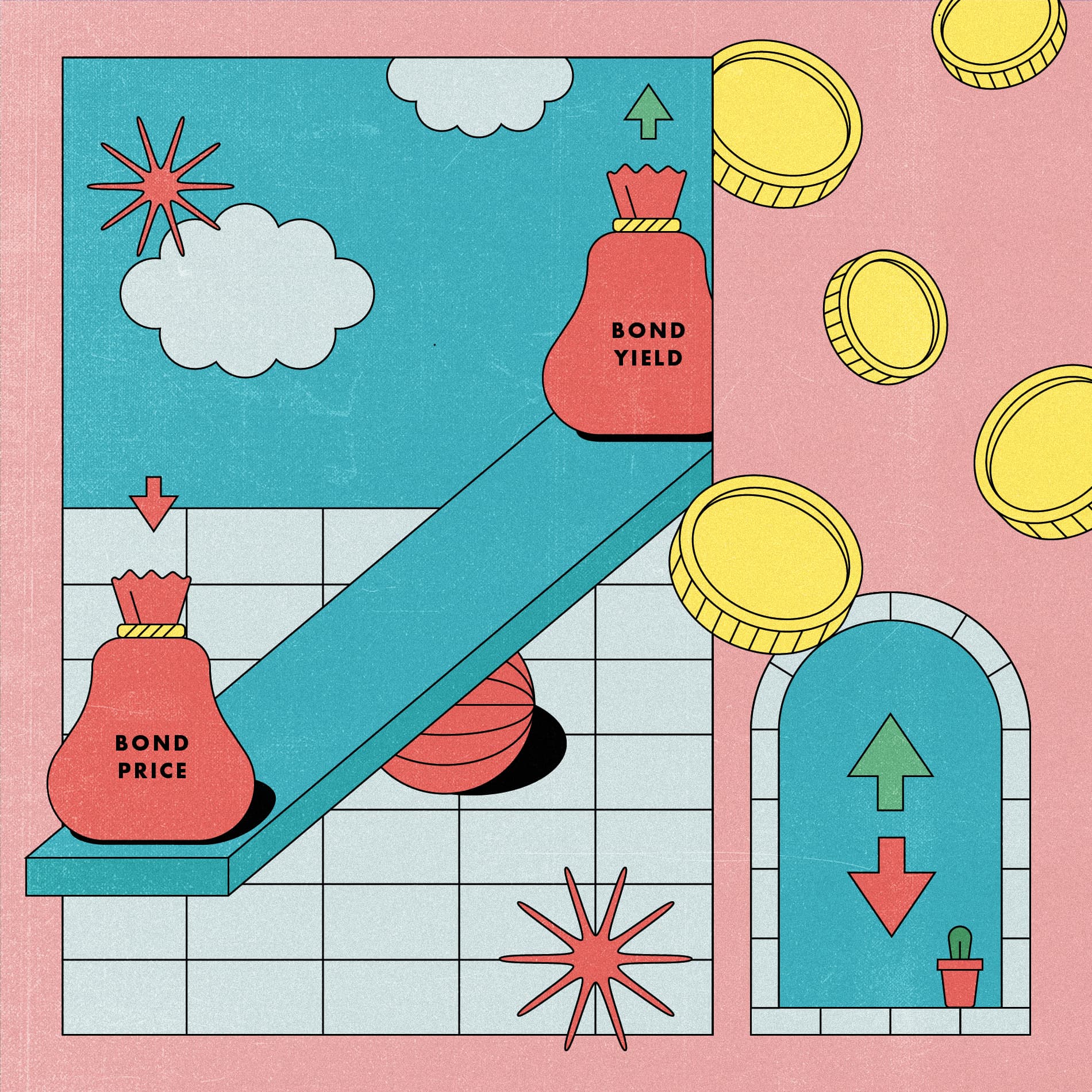
Finance for Humans
Thinking Inside the Box: Fallacies of Condo Investment
Wealthsimple makes powerful financial tools to help you grow and manage your money. Learn more
Editor’s note: This guest post is written by Andrew Dale, a Partner & Vice-President at Acasta Capital, an interdisciplinary merchant bank based in Toronto.
“The mortgage payment is only a hundred bucks more than our rent used to be – so there was no point in building someone else’s equity.”
“We’re so close to the subway – we know we won’t lose our money.”
“Our parents are so glad we finally bought something – we needed a space to call our own.”
I have been to a lot of condo-warmings over the last five years. My friends are taking the plunge. The dream of home ownership, realized by way of box in the sky.
The condo-warming ritual usually involves crowding around a kitchen island or coffee table, having bubbly, enjoying city views from the comfort of a balcony, and snapping photos for Facebook.
Condo-warming parties are fun. But there is also a disturbing trend that accompanies them – when happy first-time owners, with the halo of ownership still above them, espouse to their friends a wave of arguments supporting the validity of condos as a sound financial investment; arguments which are disconnected from the fundamental principles of finance and investing.
My co-millennials often approach me for advice when they are considering the purchase of a condo. I generally speak to three archetypes of people that come my way when thinking about making this major decision.
The goal of this post is to allow those considering purchasing a condo to avoid common pitfalls which exist within the first two of these archetypes.

Archetype 1: The Lifestyle Espousers
The philosophical value of home ownership is often imparted from parents to their children, implicitly including arguments around lifestyle and personal security. For example, my friends often argue that buying a condo is attractive because:
They will own a space that they cannot be kicked out of;
They will live in a space that they can control the design of; and
They will live a lifestyle of their choosing.
These things are all true.
However, if one uses lifestyle or emotional factors in their investment decision making process, then the decision is really not an investment – it’s a personal choice. Merging the worlds of personal choice and investment – whether it involves a condo, piece of jewelry, or a new car – can lead to the wrong financial decision on how to allocate capital, and too often, the wrong long-term outcome.

Sign up for our weekly non-boring newsletter about money, markets, and more.
By providing your email, you are consenting to receive communications from Wealthsimple Media Inc. Visit our Privacy Policy for more info, or contact us at privacy@wealthsimple.com or 80 Spadina Ave., Toronto, ON.
The question is: why can’t a condo be both an investment and a personal lifestyle choice?
The answer is that the best financial decision makers are disciplined capital allocators who assess the financial return on every dollar spent to ensure it meets an appropriate return hurdle. If you are upgrading the fridge in the unit you buy, do you think about whether the increased dollars spent will produce a 15% annual rate of return?
If you are thinking “that’s silly – why would I think about the financial returns on a fridge?” then the decision is not an investment.
Some of my favourite CEOs – Mark Leonard at Canadian software darling Constellation Software, for example – are so unemotional about investing that the naïve may confuse their lack of emotion with a lack of passion. The truth is that their success is actually predicated on their purity of thought.
As a side note, if one is interested in feelings of personal security as a source of happiness, I would argue that this happiness may exist to even greater degree after renting a condo for the foreseeable future and investing in the equity markets in the interim. If one did this in 2005, they would have built up more equity in their personal portfolio, with less risk, than investing in a condo at the outset. During this time, condo prices increased by approximately 5% per annum, with TSX equities compounding at about 8%.

Archetype 2: The Capital Preservation Espousers
Condo purchasers often think in terms of capital preservation, arguing they are unlikely to lose money in a condo, and the investment is therefore implicitly safe. Toronto has fundamentally strong demand drivers for condos, including immigration, re-urbanization, limited land supply, steady population growth, an extremely limited supply of detached homes, consistently low vacancy rates, and those who are Lifestyle Espousers who have contributed to steadily increasing condo prices over the last 10 years. On a per square foot basis, the price of a Toronto-area condo was over $550 in 2014 – in comparison to approximately $200-300 per square foot in 2005.
But a fundamental principle in investing is that there is a proportionate relationship between risk and expected reward. In order to actually make money in economic terms, the expected reward has to more than compensate for the risk taken on.
If someone told you that two jobs, at the exact same wage of $50,000 and promotion potential in two years were being offered to you – a desk job, or a job in a notoriously dangerous manufacturing plant – which would you choose? Would you choose the danger, for no extra reward? You would probably say that the risk at the plant – the chances of injury, death, or the increased stress – would make you demand a higher salary because there is a chance that the risky circumstances may cause you to jeopardize your career.
Investors need to care not about preserving money but about earning an appropriate return to compensate for the risk they take. Too many condo purchasers, in thinking about not losing money, are utilizing the wrong paradigm and in doing so, are actually losing money from an economic perspective.

Archetype 3: The Risk-Return Espousers
So that leaves the Risk-Return Espousers: those who evaluate condo purchases with sober rationality, and demand an appropriate expected return to compensate for the risk profile. If the appropriate expected return does not exist, the decision is to rent and find a more suitable investment.
Let’s say we buy a $300,000 condo, and put 25% down – so we have a $225,000 mortgage, for 25 years. Let’s say, for simplification purposes, that our mortgage, taxes and maintenance fees over the next 25 years are equal to what our monthly rent would be if we had rented, and that there are no significant broker fees, renovations, or other material costs. Note: these assumptions do not impact the math materially.
Next, it’s important to figure out where a condominium purchase sits on the scale of riskiness versus other investments.
If we invest in stocks, we generally expect a return of 5-6% in excess of Government Bonds – let’s say 8% on an all-in basis, based on current rates. Is the purchase of a condo more or less risky than stocks? The additional risk factors for condos might include:
Using lots of debt – such as a big mortgage at 80% of the condo’s value – to invest;
Exposure to interest rate fluctuations – such as a floating rate mortgage;
Ownership in a single asset for those who have maxed their savings out to buy – leading to significant asset-specific risk (say a faulty building, a bad unit, or an area which does not gentrify as expected);
Lack of liquidity – versus assets like public stocks; and
Uncertainty around what portion of condos are owned by foreign investors, and what impact this may have on the market over the long-term.
Due to these factors, a condo owner should expect a rate of return in excess of the stock market. The key source of return in a condo investment is (i) price appreciation, amplified by (ii) the use of a mortgage. This means that we are able to gain ownership of the condo even though we only put a minority of the capital down, and that every 1% of price appreciation results in a more than 1% of return to the investor. Notably, the reverse is also true – thus making leverage a risky proposition for which we should demand extra return, regardless of the asset we invest in.
Given the factors above, let’s say that we expect a return of 12-15% per annum over the long-run for our condo.
When we model this out, we are implicitly relying on condo price appreciation of 6% to 9% per annum over 25 years to meet our return hurdle.
This is where the math of condo purchases often falls apart. Is the minimum assumption of 6-9% price appreciation for annum, over 25 years, reasonable? That is a judgement call. Over the last 20 years – a major boom period for condo (and other real estate) investment in Toronto – price appreciation hasaveraged 5.1%.
What is to come? Who knows, but here are some recent headlines:
“Condo prices could be in for a prolonged period of much more subdued growth, even stagnation for smaller units, while detached home prices push higher through the end of the decade.”
– Robert Kavcic, Bank of Montreal economist, April 2015
“Intense competition has pushed the average price of a detached house over $1-million, while a flood of newly built condos, many of them aimed at investors, has kept prices flat.”
– Globe & Mail, March 2015
Note that these headlines do not imply a crash (in my view, an overblown concern – but that’s another post), or a shutdown in new condo construction. What they do imply is that condo investment has highly questionable financial grounding. My belief is that pricing growth in excess of steady-state economic growth, and in excess of pricing growth experienced during a protracted boom, is not a reasonable long-term investment assumption. Therefore, I’m a long-time renter. I love my lifestyle, and I can love it with a free conscience while investing in the equity markets instead.
So when you invite me to your condo-warming party, just know that I will give you my customary condo-warming gift (it’s an air mattress, for those nights when suburbanites want to crash). I will love the views from your balcony, share laughs with you throughout the evening, and wish you much happiness in your new home.
One favour to ask, though: please don’t tell me you made the best choice for your financial future.
Source: Dunning, Will. Current Condo Development in Canada’s Three Largest Cities Supported by Economic Growth and Sustainable Housing Demand. Royal LePage Study, December 2013.
Wealthsimple's education team is made up of writers and financial experts dedicated to making the world of finance easy to understand and not-at-all boring to read.









